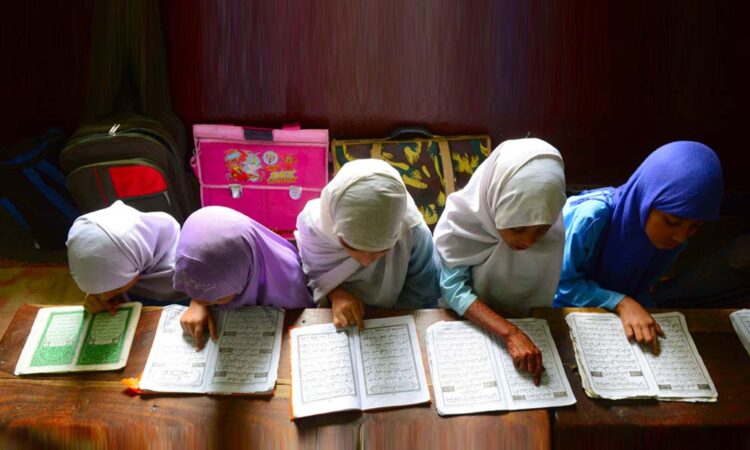In a significant step towards equalising education for all, the Allahabad High Court on March 22, declared the Uttar Pradesh Board of Madarsa Education Act 2004, unconstitutional. While calling the act violative of the principles of secularism, the Court said that Madarsa education is against the principle of secularism, and the State must make sure that students taking part in religious teachings should be accommodated in the formal education system.
A bench including Justice Vivek Chaudhary and Justice Subhash Vidyarthi called the law as Ultra Vires and instructed the UP Government to shift the children from Madarsa to a formal education board. The ruling comes months after the State government decided to conduct a survey on the Islamic education institutions in the State and it had also formed an SIT in October 2023 to probe madrassas’ funds from abroad.
It is noteworthy that Uttar Pradesh is home to over 25,000 madrasas, of which approximately 16,500 are officially recognised by the UP Board of Madrasa Education.
Notably, one Anshuman Singh Rathore moved a writ petition in the Allahabad High Court challenging the funds and management of the UP Madarsa Board as well as objecting to the role of the Minority Welfare Department in Madarsa’s, both by Union of India and State Government and other connected issues.
Following the petition, the division bench in December 2023, raised its concerns about potential arbitrariness and stressed the need for transparency in the administration of educational institutions, noting the broader issue of whether such decisions align with principles of equal opportunity and secular governance.
Back in October 2019, the HC referred certain essential questions surrounding the concerns of the functioning and structure of the Madrasa board to a Larger Bench in a writ petition named Mohammad Javed Vs. State of U.P. and others.
These questions were as follows:
“(i) Since the Madarsa Board is constituted for education in ‘Arabic, Urdu, Parsian, Islamic-studies, Tibb Logic, Philosophy and includes such other branches of learning as may be specified by the Board from time to time’, how come persons of a particular religion are provided to be member of the same? It does not talks about exponence in the aforesaid fields, for the purposes of which the Board is constituted, but persons of specific religion. It was put to learned Additional Chief Standing Counsel as to whether the purpose of the Board is to impart religious education only, to which he submits that a perusal of the Madarsa Education Act, 2004 does not indicate so.
(ii) With a secular constitution in India can persons of a particular religion be appointed/nominated in a Board for education purposes or it should be persons belonging to any religion, who are exponent in the fields for the purposes of which the Board is constituted or such persons should be appointed, without any regard to religion, who are exponent in the field for the purposes of which the Board is constituted?
(iii) The Act further provides the Board to function under the Minority Welfare Ministry of State of U.P., hence, a question arises as to whether it is arbitrary for providing the Madarsa education to be run under the Minority Welfare Department while all the other education institutions including those belonging to other minorities communities like Jains, Sikhs, Christians etc being run under the Education Ministry and whether it arbitrarily denies the benefit of experts of education and their policies to the children studying in Madarsa?”
It’s worth recalling that in February of this year, the state government initiated an effort to trace the source of funding for over 1,500 unregistered madrassas in the Indo-Nepal border regions.
In October of the previous year, a state government survey revealed the existence of over 7,500 unregistered madrassas in the state. On September 1 of the same year, the Uttar Pradesh government announced its intention to survey unrecognized madrassas to gather information on details like teachers and students, curriculum, and any affiliation with non-governmental organizations.
In August last year, the government led by CM Yogi instructed district magistrates to conduct a survey of unrecognised madrassas. This two-month survey uncovered 8,449 madrassas that were not recognised by the state madrasa education board. Beyond Lakhimpur Kheri, Pilibhit, Shravasti, Siddharthnagar, and Bahraich near the Nepal border, more than 1,000 madrassas operate in various other nearby areas. Sources have reported a rapid increase in the number of madrassas in these regions over the past few years. Additionally, information was received about these madrassas receiving foreign funding.
The state has 16,513 recognised madrassas, with 560 of them receiving grants from the government. State officials indicated that this decision was made due to concerns about anti-national activities and forced conversions being facilitated with foreign donations.




















Comments